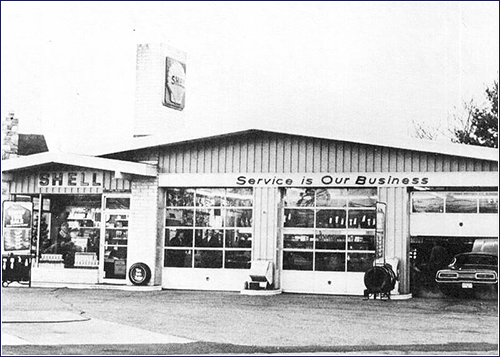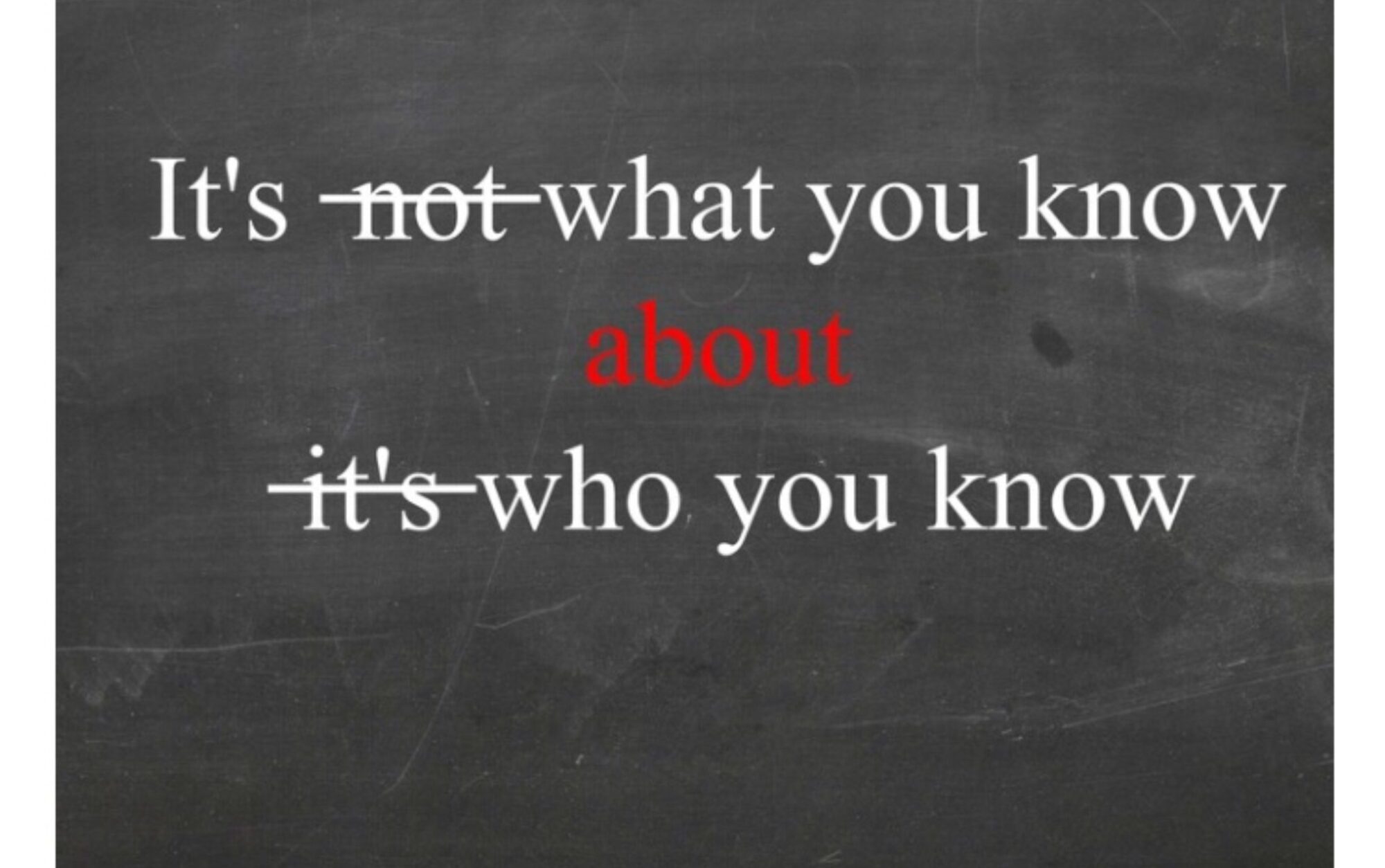
The bias ply tires of the Ford LTD Country Squire skidded to a halt and our collective heads shot forward. Wow! When I think about it now seatbelts were those things you shoved underneath the seat to prevent one’s butt from being chafed on the white metal buckles. Circa 1973 and the smell of Erinmore Mixture tobacco is in the air courtesy of my dad, Mr. Donald Keyes, and his Peterson pipe. Between a bellow of smoke, he announces…
Boys, I gotta show you something!
Driving around with my dad was always a weekend treat between my siblings and me. (And a well-deserved break for my mom) Dad would take us to mysterious places like junk stores, art galleries, places other kids wouldn’t visit until much later in life. But now there was a mystery hiding in plain sight about to be exposed.
See there… see that Shell station. It’s not just about gas anymore, boys!
And so begins one of my earliest lessons in marketing: the cross sell.
The Shell gas station was one of 100’s of examples my dad would point out in teaching us kids about marketing. His notion of the cross sell is perhaps derived or inspired by this quote from Peter Drucker,
There is only one valid definition of a business purpose: to create a customer.[1]
Although my dad is a great admirer of Peter Drucker and would quote him often, he would respectfully make an addition to this seminal point of reason: the only valid definition of business purpose is to create and keep a customer. Hey, don’t get me wrong, my dad was never against acquiring new customers. His concern and advice to his clients over 30 years running his direct response marketing agency was about the cost of acquiring new customers at the expense of ignoring existing relationships was and still is his ultimate message. Even if his clients managed to acquire new customers and somehow successfully pull off an up sell opportunity that the process suddenly stopped there… wash, rinse, repeat. No sir! You have to keep exploring new ways to move your existing customer up a ladder to full blown advocacy where the customer will buy anything you have to offer.
Back at the Shell gas station my dad saw the future evolving. Gas stations used to be called service stations but we know over time the automotive repair business model faded away and “self-serve” gas came in. So where did the service go? The service came in the form of the up sell and the cross sell. The up sell was always there and a complete no-brainer. It was anything automotive related,
Can I check your oil, sir?
With “self-serve” coming to the fore personal service or the opportunity to sell was dwindling. Or did it? In came the “cross sell.” At the service station you could still get your gasoline, your motor oil, windshield wiper fluid… along with your milk, bread, OJ, Erinmore Mixture tobacco and your lottery tickets. Who would have thought that we lost the tradition of the classic service station only to return to a bygone era of the general store like a scene from The Walton’s when the family could get their gas and their grocery items in one visit as we do now at Great Canadian Superstores (and the home of the President’s Choice brand… and President’s Choice Financial… a bank, no less!)
Whether we are talking about the Shell gas station or some other business, the cross sell was all about a very simple concept: maximizing share of the customer’s wallet. Even though Shell or others may no longer call it a “service station” indeed it’s still about service or expansion of that service to understand the layers in the customer’s wallet beyond providing gas and motor oil. Perhaps this sounds devious or simply an economic reality. Let’s not forget the margins and volatility of selling gasoline as a commodity especially during the energy crisis of the early ‘70s as a wakeup call. For petroleum retailers something had to change to hedge against this volatility.
Moving forward to today, one of Canada’s biggest gasoline retailers Petro-Canada provides cellular phone plans ready to go in 15 minutes. And these cats are smart about it because the consumer gets to collect points on usage of their iPhone and redeemable for gas purchases. The underlying rationale however is this: the cost of keeping these customers on board is far less expensive than acquiring new customers. Affinity programs, as in the Petro-Can example, do well in terms of customer re-activation, up sell, cross sell, expand share of wallet and ultimately provides marketers a quantifiable understanding of lifetime value to honour their customers’ needs better way into the future.

The gasoline station of today is more than just gas and motor oil, now. It’s a distribution channel for goods and services perhaps not fully realized in the ‘70’s. To us kids, now adults, now consumers, benefit from this unimaginable level of convenience. As marketing professionals, we watch in awe this exciting evolution in commerce of mixing products and services together like no one ever thought possible. Buckle up, Millennials. It’s going to get even more exciting for you in the next few years as to your choices… maybe one day you’ll score a really great mortgage rate from your local gas station like the way you can at a grocery store.
And for me, I will continue to illustrate exciting changes in marketing as my dad did for me… all the while remembering great adventures and explorations in the Ford LTD Country Squire with my dad at the wheel and his indelible words riding on a sweet smoky cloud of Erinmore Mixture.
[1] Peter Drucker, The Practice of Management, 1954, p. 37 via WikiQuotes
